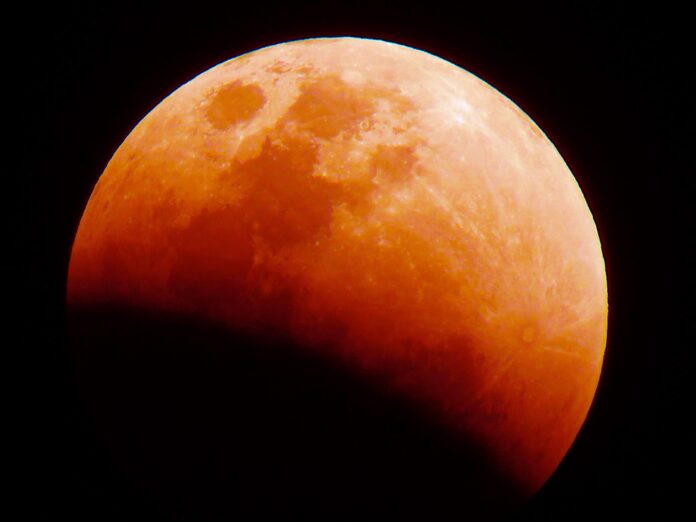
A spectacular lunar eclipse is set to turn the full moon red tonight, Wednesday 26 May, when a Super Blood Moon will grace the sky and people in Australia will be afforded some of the best views of the red moon.
The event is a combination of May’s full Flower Moon, known as a “supermoon” due to its closer proximity to Earth, and a total lunar eclipse.
Unlike the Pink Supermoon that took place in April this year, tonight’s Super Blood Moon will actually appear red.
ANU Astrophysicist and Cosmologist Dr Brad Tucker said the Super Blood Moon has always fascinated people around the world, with some cultures even linking the event to bad omens.
“Famously, Christopher Columbus used knowledge of an upcoming total lunar eclipse to scare Indigenous people in the Caribbean who wanted to get rid of him,” Dr Tucker said.
While the red glow of the moon might look a little unnerving, Dr Tucker said the lunar eclipse will only last approximately 14 minutes, with the best time to see it between 9.11pm and 9.25pm.
“The action starts at 7.44pm in Canberra where the moon will slowly darken.”
“Totality, when the moon is fully in the shadow and red, is between 9.11pm and 9.25pm with it all ending just before 11pm,” he said.
According to Dr Tucker, this supermoon is technically a perigee-syzygy, bringing it slightly closer to the Earth than it was in April.
“The orbit of the moon isn’t perfect, and sometimes it is closer, and therefore bigger and brighter,” he said.
“This is the case with the full moon next Wednesday which also happens to be a total lunar eclipse, so a Super Blood Moon is born.”
Dr Tucker explained that a total lunar eclipse occurs when the moon passes through the Earth’s shadow. The combination of the size and orbit of the moon, along with the light that skims through the Earth’s atmosphere and into space, helps to produce the dark red glow.
“Just as sunrise and sunset is orange or reddish, so is this light that skims through the Earth’s atmosphere,” he said.
“As the moon gets perfectly centred in the shadow, it hits this orange-red light. So, you are seeing the sunrise and sunset of the Earth lighting up the moon.
“The fact that we get two different physical things happening at the same time is always cool,” Dr Tucker said.
For more:








